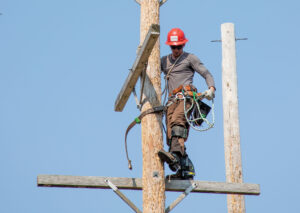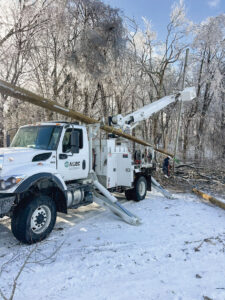Due to an unintended consequence of current federal tax law, many electric co-ops are finding themselves in a precarious position.
Imagine working hard to secure funding for an important local project only to turn around and give a large chunk of that money back in taxes.
That’s the situation many Illinois cooperatives may face because of recent tax law changes. And it could jeopardize the not-for-profit tax status of cooperatives that receive federal or state government funding of any kind, including disaster relief aid, energy efficiency grants, economic development support and rural broadband development grants.
In order to maintain tax-exempt status, an electric cooperative must receive at least 85 percent of all revenue from its members. However, an unintended consequence of a 2017 change to federal tax law modified the calculation for some contributions by a government entity or civic group.
Now, grants and other contributions may be considered non-member revenue and could threaten a co-op’s tax-exempt status. This would have a profound impact on co-ops and their members.
For example, West Florida Electric Cooperative Association has received $24 million in expedited reimbursement from the Federal Emergency Management Agency (FEMA) this year for storm recovery work in the wake of Hurricane Michael in 2018. That’s about 40 percent of the co-op’s projected annual revenue. Gulf Coast Electric Cooperative to the south is in the same tax position, and three other Florida co-ops could surpass the 15 percent threshold by year’s end. It’s unfair to classify the FEMA reimbursement as revenue—it was for expenses that West Florida incurred to restore service to a large swath of its members after the category 5 hurricane pounded the Florida panhandle.
Encouraging Congress to fix the tax code to exempt government grants from being defined as member revenue is one of the highest priorities of the National Rural Electric Cooperative Association, the service organization representing America’s electric co-ops. Legislation called the Rural Act has been introduced in both the House and the Senate, attracting large groups of bipartisan cosponsors. However, getting it enacted into law will be a heavy lift, given the political sensitivity of tax issues on Capitol Hill.
Congress must act now to correct this unintended consequence and protect the tax status of electric co-ops. In doing so, Congress would preserve the full value of government grants that deliver societal benefits to our communities.
You can play an important role in encouraging Congress to act. Voice your support for the Rural Act by visiting www.action.coop\ruralact.
Source: Dan Riedinger, NRECA








